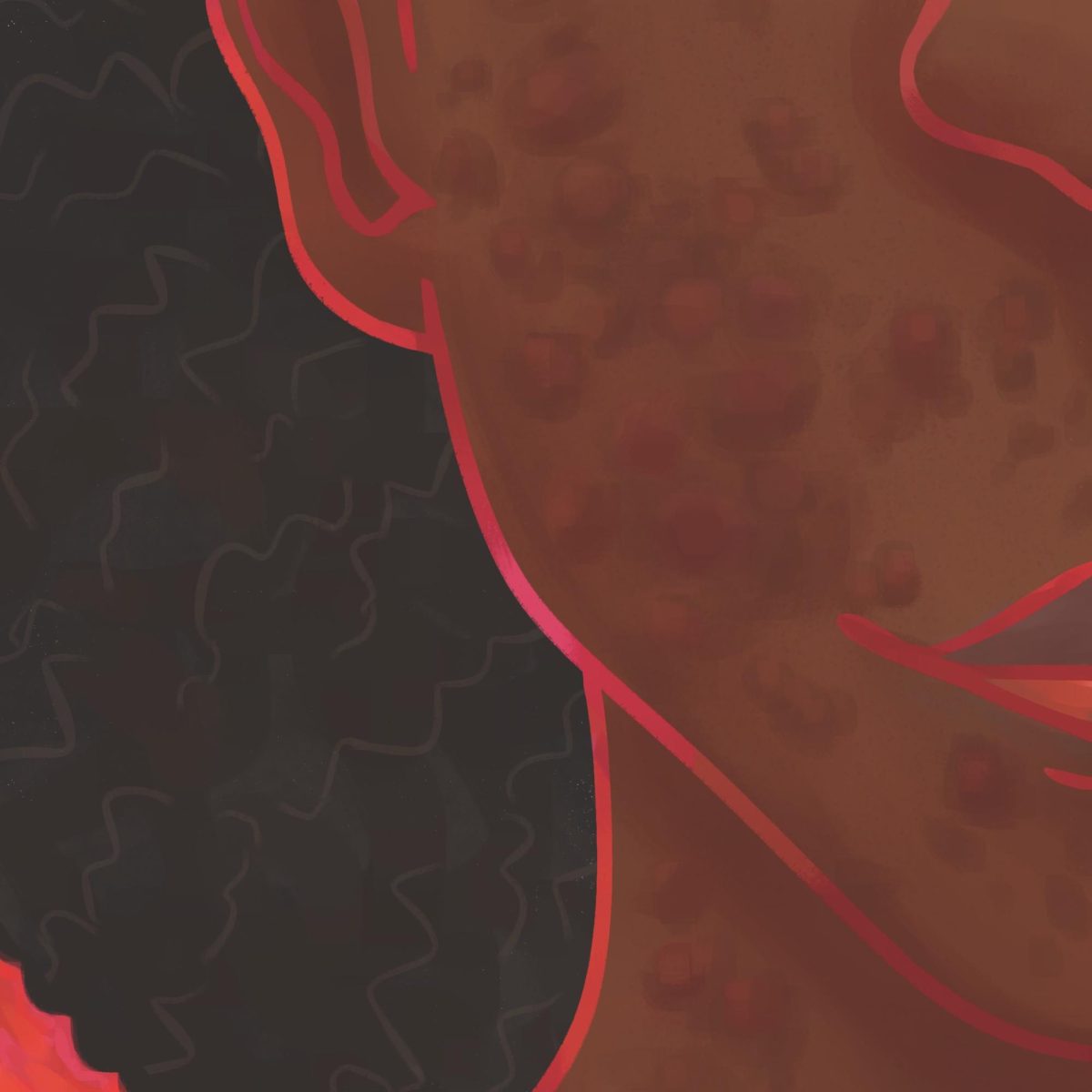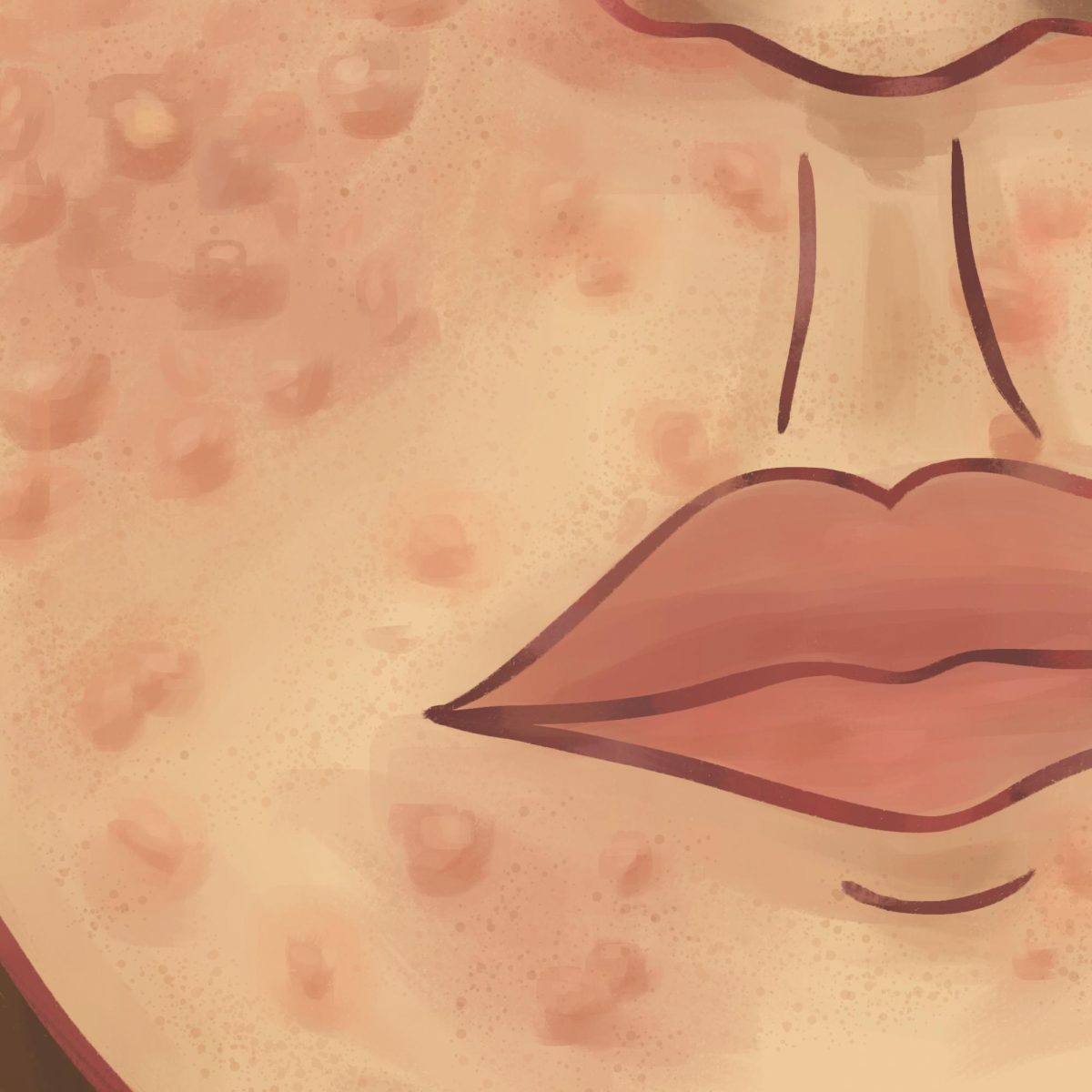There is something so universal about looking in the mirror and wondering to yourself, “Am I pretty?”
I’ve been there too many times to count, for too many reasons. Dysphoria, teen awkwardness, longing for features I wish I had been born with — any number of things can cause one to muse over one’s face in the mirror a little too long. But a lot of the time, the catalyst is immediate.
It’s red, it’s bumpy, and statistically, most of you have gotten it before. Acne is a trademark of puberty for many, and a particularly horrible one, too. According to a study in the National Library of Medicine, over half of teens who get acne consider it to be the most difficult part of puberty. And even if these statistics are from over a decade ago, the sentiment still remains in many of us with acne today.
In a society where your appearance is a direct factor in the way you are treated, blemishes are not just physical marks, but something to be judged for. The question changes from if you are beautiful enough, to if you are enough, period. The scars of puberty are too often seen as flaws, not signs of growth.
The once-narrow box of what is considered beautiful has widened in recent years. People of all different backgrounds, beliefs, bodies — held up as beautiful for all facets of themselves, not just the normative ones. However, the negative stigma around acne still persists. Unclean, awkward, infectious … all inferred only from spots on the face.
Even if the victim of those assumptions knows they are untrue, they can still take a toll on one’s confidence and self-perception. When you run your finger across your cheek, wanting a plain but getting mountains, it stings knowing what that rocky terrain means. No matter how normal acne is, especially for teens, the preconceived notions surrounding it can make those with it feel inadequate. And that they aren’t good enough for the perfect skin held up by the society they live in.
I am no paragon of self-love, and I don’t think I ever will be. I still struggle with doubts about my appearance. I still pore over my pores anxiously, and look at my reflection wondering if I fit into what society deems beautiful.
But physical flaws should never define one’s worth as a person, and stressing over whether you meet an ever-changing standard of perfection has never done any good for anybody. Scars are growth, even if other people don’t know it.
Beauty isn’t a box to fit into or a bar to reach towards. You’re already there. You are beauty, unchanged.

